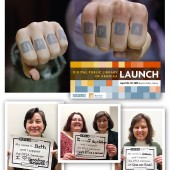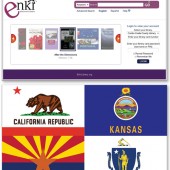University of Washington iSchool’s Joseph Janes calls for libraries to strike a balance between protecting privacy and innovating to add value—with patrons’ permission. This essay is part of an exclusive LJ series, Reinventing Libraries, that looks at how the digital shift is impacting libraries’ mission.
Declaring Independence
Accessibility Upgrade: EPUB, Libraries, and Ebook Accessibility

During a visit to Egypt two years ago, George Kerscher, Secretary General of the Digital Accessible Information System (DAISY) Consortium, found that the country’s major libraries had only a very small collection of books available for print-disabled patrons. And while staff and volunteers were working to make more books accessible, output was limited to only a handful of titles each year.
Discerning this as an outsider, Kerscher (who is blind himself) realized that it was very much a microcosm of how the process of producing accessible books has traditionally functioned in the United States.
What is the DPLA?

The question that has most frequently come up in the course of the two-year planning process for the Digital Public Library of America (DPLA) has been a very simple one: What is it?
Since April 2010, the planning initiative has taken the form of an extended, national design phase to plan out what we should build together. The emphasis of this process has been to solicit diverse views as to what the “it” should be that we are working toward.

